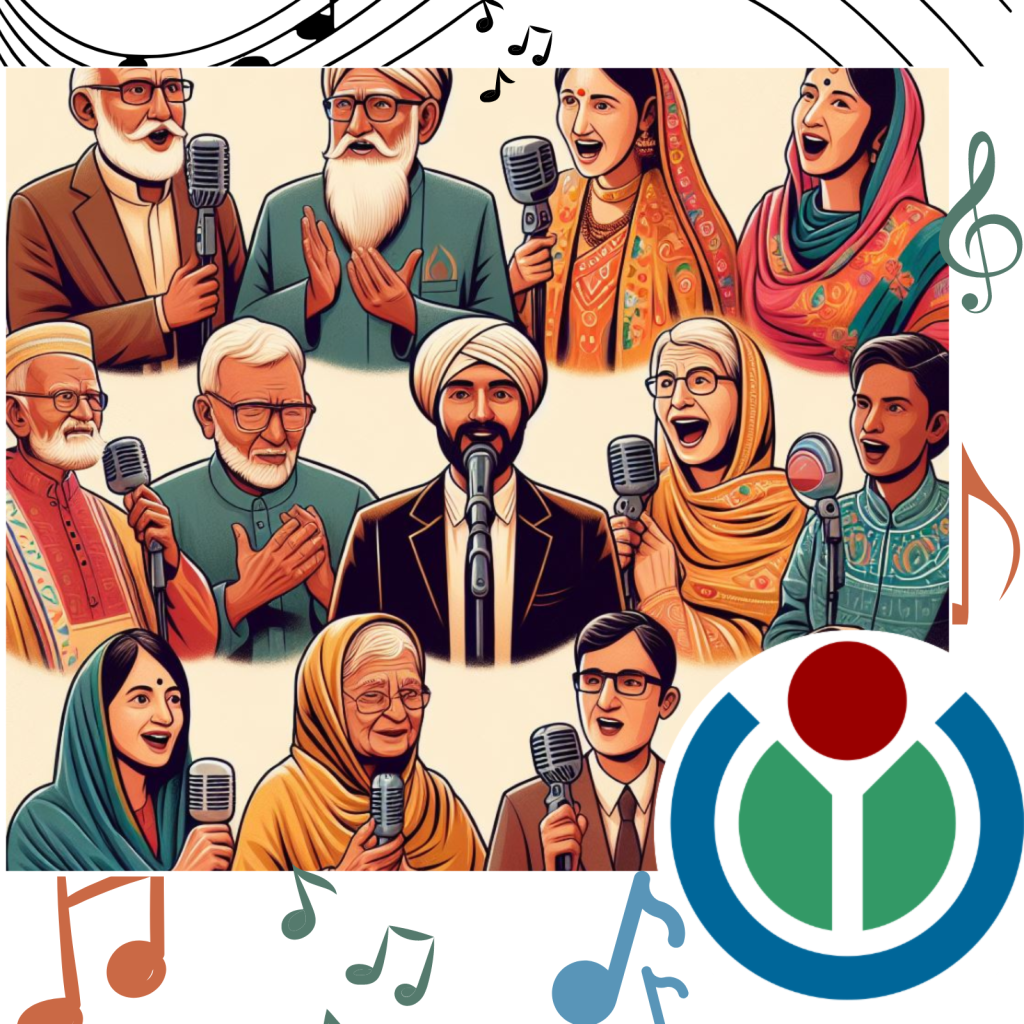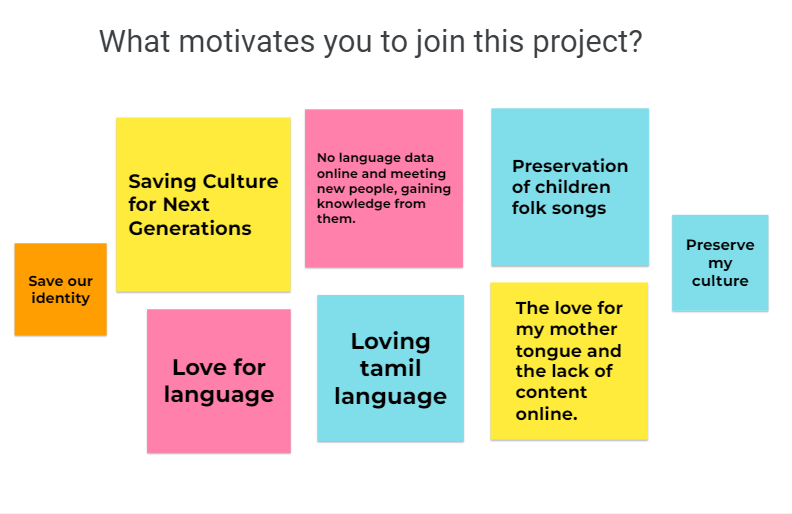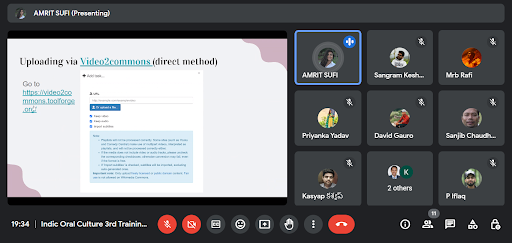
The Indic Oral Culture Project successfully concluded its pilot phase, a collaborative effort to document and preserve the region’s oral heritage with the active participation of local communities. This initiative aimed to safeguard oral traditions by utilizing Wikimedia projects to create a globally accessible digital repository of Oral Culture. Workshops during the project empowered citizen archivists to become stewards of their cultural heritage through archiving, transcription, and translation of the content that was captured.
One of the participants, Priyanka Yadav from the Ahirwati speaking community says: “In my opinion, the documentation of Ahirwati folk songs is in its initial stage. People are unaware of losing their language and culture… In this project, I recorded some Ahirwati folksongs and uploaded them on Commons with their subtitles. In the process, I learnt new things about my own language, traditions, and culture. Being a female participant, it was easy for me to reach out to women who sing folk songs in the Ahirwati community as it is usually women who sing them.”
Community at the Heart
The project prioritized community engagement throughout the pilot. Collaborations with native speakers and oral historians helped identify key narratives and traditions for documentation. Capacity-building workshops equipped participants with the skills to record, translate, and upload cultural heritage materials on Wikimedia projects and distribute them to a wider audience.

Another project participant, Kavitha Ganesh from the Tulu community speaks about the importance of documenting oral culture: “The coastal region of the Tulu speaking community has numerous traditional cultures, which need to be captured and preserved. In many of these cultural practices, there is science behind it. When we were listening to these, it felt like excavating the true knowledge of the practitioners and the science behind these cultural practices left us mesmerized. The practitioners also were enthusiastic and supportive in preserving these oral cultures through Wikimedia.”
When asked how the contribution of the IOCP participant from the Eastern Tharu language benefits the community, Sanjib Choudhary tells us: “I had not imagined that the communities would be so eager to help me document the Eastern Tharu folk songs. All of them, both from Sunsari and Saptari districts in Eastern Nepal, sang the songs enthusiastically and promised to help me document more songs in the future. I was invited to one of the sharing sessions organised by Tharu Bhasa Sahitya Kendra in Saptari district. When the participants learned about the initiative, some of them reached out to me and lent hands for collaboration.’’
So far, participants of two participating communities: Tulu and Eastern Tharu have planned to expand the documentation via an initiative called Folk-a-thon workshops, and collaborating with cultural groups based in Saptari district is aiming at documenting the soon-to-vanish Tharu traditional dances.
Virtual Collaboration
We conducted a series of online workshops that brought together participants from India, Bangladesh & Nepal. Our focus was on empowering native speakers to document their own oral traditions. We introduced the concept of oral culture documentation, provided training on fieldwork methodologies, and familiarized participants with the Wikimedia workflow.

While an in-person meetup was originally planned, unforeseen circumstances necessitated a shift to an online format. Despite this change, the virtual meetup proved valuable. Participants engaged in in-depth discussions about the role of Wikidata, Wikipedia, and Wikimedia Commons in cultural documentation. Bharathesha Alasandemajalu, a documentary filmmaker from Tulu community offered unique insights into crafting high-quality documentaries, equipping participants with valuable video production skills via the example of their award winning documentary on ‘Purse Kattuna’
The Indic Oral Culture Project yielded impressive results, documenting the oral traditions of 11 languages across 9 communities in Nepal, India, and Bangladesh. This included creating & uploading 142 videos, transcripts and 5 audio recordings to Wikimedia Commons. The project further hosted a week-long online edit-a-thon to ensure the uploaded content on Wikimedia Commons found its way into other Wikimedia projects like Wikipedia, Wikidata, and Wikisource. This edit-a-thon, joined by 5 participants enriched sister projects with 44 new articles, 73 articles revised, and over 22.73K words added, resulting in 245.72k article views.
Here are the links to examples of recorded folk tale.
Looking Ahead
The Indic Oral Culture Project is now strategically planning its expansion. This exciting future includes the development of resources to engage broader participation, collaborations with cultural institutions to further promote intercultural dialogue, and strengthening regional networks and collaborations.
As the Indic Oral Culture Project concludes its pilot phase, it marks the beginning of a journey towards safeguarding the rich oral culture in South Asia. Last but not least, We’d like to express our sincere gratitude to each and every participant. Their hard work and dedication were the driving force behind this project’s success. We are also incredibly thankful to the project advisors who generously shared their wisdom and guidance, and Wikimedia foundation… For more information, feel free to contact us at amritsufi2@gmail.com or 511kevwiki@gmail.com

Can you help us translate this article?
In order for this article to reach as many people as possible we would like your help. Can you translate this article to get the message out?
Start translation